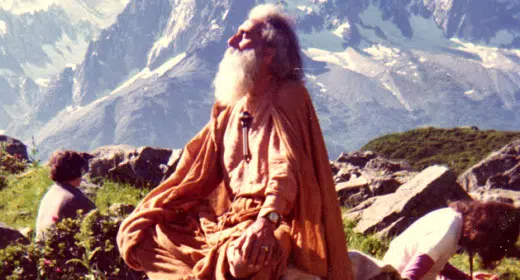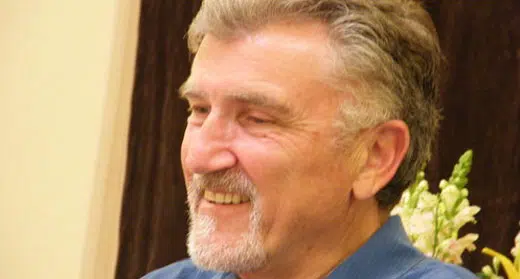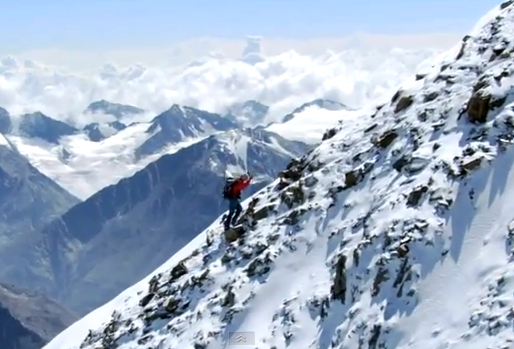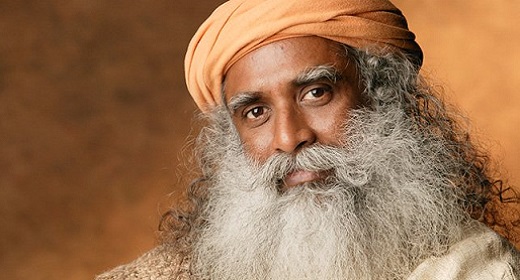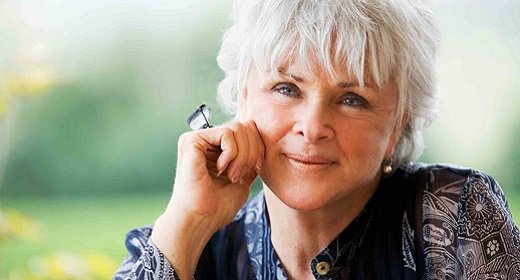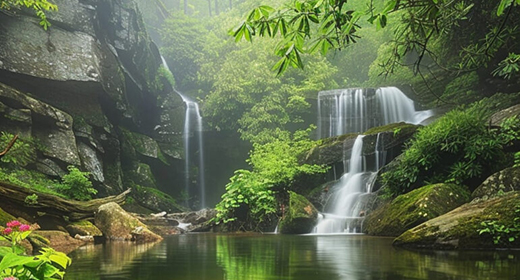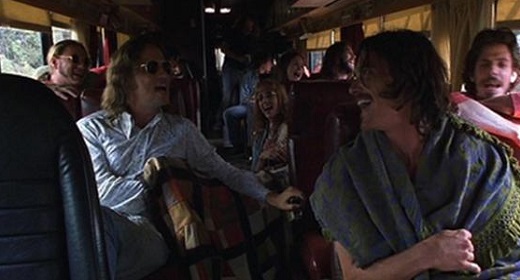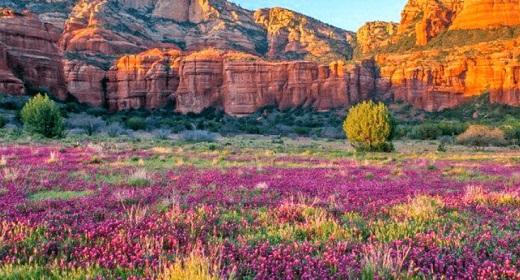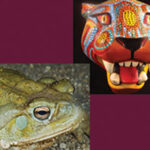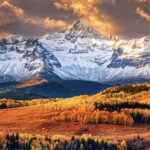by Georgina Cannon: Heaven or Hell ? Or something else?
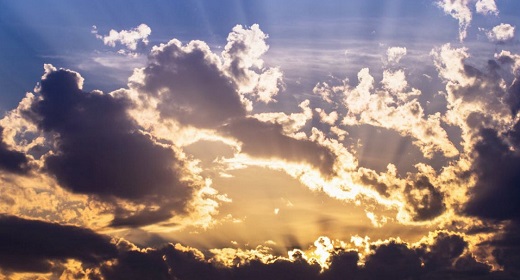
Life is a process of becoming, a combination of states we have to go through. Where people fail is that they wish to elect a state and remain in it.
This is a kind of death. ~Anais Nin
When I’m working with clients in the clinic, one of the key aspects of my work is to discover their view of their world… what does their map of their world look like?
Is it filled with criticism, judgement, ‘back luck’ or blame, or is it a world inhabited by kind people and discordant behaviors? Often I ask them to look around the room and then close their eyes, and tell me the environment in which they are sitting. I get everything from “it’s a green room with a blue chair and you’re sitting opposite me waiting for my answer — which will probably be wrong” to “This is a safe place for me, where I can feel OK never mind what I say or think. The colors in the room are gentle and the flowers and pictures on the wall help me recognize I am inside and the outside is vast and waiting for me”.
It is truly amazing, each and every time, the differences in the answers. I believe we all underestimate the differences in the way we see the same thing. I have written about just that in my next book, due out this Fall. Enjoy this preview!
Heaven and Hell on Earth
To different minds, the same world is a hell, and a heaven.
~Ralph Waldo Emerson~
Hell on earth is a given right now. Practically everywhere you look, you can see evidence of the ghastly state so much of the world is in. And so it has been for a while.
Ask anyone who has been through the Holocaust about hell on earth, or survivors of the Bosnian war, or Darfur. Ask the starving in Bangladesh. Look at the children who are brutally abused by their own parents, or the women who are routinely and ritually mutilated. Look at the cruelty to animals that is beyond understanding, or the lowest, deepest forms of depression, or the mindless, psychotic destruction of life. Surely these must count as hell on earth.
Heaven on earth is also a given right now. The times we see the sun come up over a mountain, or set and dip below a peaceful ocean, we exhale, “This is heaven.” When I mountain-trekked in the Adirondacks, I’d turn a corner on the path and see before me mountains stacked up, one behind the other, covered in grasses and flowers of colors not seen at sea level; hawks and eagles circling overhead; the sky, clear, bright, vivid blue; ancient rocks sharing their solid-state energy and the sound of quiet. Silence. Peace and beauty. Heaven on earth. For me. At that time. I still remember it in my heart-mind.
In the final analysis, the hope of every person is simply peace of mind. ~Dalai Lama~
The blossoming of trees and flowers each spring. The giggle of little girls. A crying, ongoing belly laugh with my sister and friends. The purr of a cat on a lap, or the wet nose of a dog in the hand. Eyes that welcome with love. Each morning I awake healthy, with a new day to enjoy. This is my heaven!
I have often wondered if, in fact, our Interlife, as our heaven and hell, is right here, right now, at this time, on this planet.
Interlife on Earth
Isn’t all of life a series of little deaths and rebirths? We are all constantly in a state of flux. Part of me believes that during times of great introspection, we are, in fact, in Bardo. Think about it. When do the most profound spiritual changes take place in our lives?
During a “dark night of the soul,” there is nowhere to go but toward the light. Our spirit is at its most vulnerable. Everything is stripped away, and we are naked in the face of our weakness. The very nature of a rock-bottom moment, such as the turning point for an alcoholic or drug addict, is that we finally realize how far we have fallen and how far we have to go. There is so much pain, withdrawal, and searching for truth. The yearning has a fierce power. We know that we have a lesson, perhaps many lessons that we have to learn. Could this condition be Bardo?
Bardo, or the Interlife, remember, is the place we go between lives to refuel, refocus, heal, and redirect our spiritual growth. We come out of it when we are reborn into a fresh new life, one pregnant with possibilities for healing and evolution.
Isn’t this exactly what happens when we reach the deepest depths of depression or depravity or desperation? There is nowhere to go but up, and the process of coming out of such a state brings the opportunity for innumerable spiritual lessons. This is the very definition of a soul’s rebirth. It is the time of life lessons, the time for future growth planning, the time for a soul’s shift back into the light.
This is the equivalent of the Interlife journey. Our souls are wiped clean and have the chance to start over.
We see it many times in classical literature and in history, the rebirthing of the human soul into another manifestation after a tragedy.
Dante and the Interlife
One famous and superb example of this theme can be found in Dante’s Inferno, written in 14th century Italy. Inferno is an epic poem depicting Dante’s allegorical journey through the underworld.
Inferno is a story that exists on two levels. One is the literal level, where the actions and images are taken at face value. The other level is purely symbolic, and all the major details actually represent something else, something bigger.
From the first scene of Inferno, the poem is rich with symbolism. The poem opens on the evening of Good Friday. As Dante is following a dark path through the forest, he loses his way. He can see the sun through the tops of the trees and tries to find his way out of the woods, but his path is blocked by three beasts. Dante retreats back into the forest full of fear.
Midway in our life’s journey, I went astray from the straight road and woke to find myself alone in a dark wood.
A dark path, a lost traveler, obstacles blocking his way to the light — do you see a theme developing here?
Dante meets a guide — the ghost of Virgil, the great Roman poet — who has come to help Dante find his way. Virgil tells him they will have to travel through hell in order to get to heaven.
Again, the theme.
Virgil leads Dante into hell. Dante witnesses tortured souls who are trapped in a sort of pre-limbo, being chased and bitten by hornets for all of eternity.
According to Dante, hell is organized into nine circles. Each circle houses sinners who committed progressively worse crimes. The first circle, for example, is for pagans who never knew Christ — a relatively minor sin. The next seven circles house souls who “specialized” in one of the seven deadly sins. The ninth circle is for the most depraved souls of all — betrayers of trust.
Abandon hope, all ye who enter here.
Dante goes through all eight circles and comes to the ninth, where he finds himself in the absolute lowest region of hell. It’s an icy lake in which sinners stand frozen. Dante observes several sub-circles inside the ninth circle and then sees a huge shadowy figure before him. It is Lucifer himself, waist-deep in ice. Virgil and Dante have to climb down Lucifer’s massive form in order to get out of hell. They emerge on Easter morning just before sunrise.
Again with the theme! Dante has to reach the deepest pits of hell, even touch the devil himself, in order to cross into sunlight. Even better, he emerges on Easter Sunday, a holiday that, for a Christian — which he was — celebrates resurrection and new life. Does this sound like the quintessential dark-night-of-the-soul journey?
The symbolism is clear: Sometimes you have to reach the very bottom, the worst possible place, before you can emerge cleansed and victorious. This theme is embodied in the last lines of the poem, which read:
To get back up to the shining world from there
My guide and I went into that hidden tunnel …
Where we came forth, and once more saw the stars.
This theme of symbolic death and rebirth has been written and recorded in Western culture since well before the fourteenth century. In 800 BCE, Homer wrote the classical Greek epic, The Odyssey, in which the hero, Odysseus, undergoes several symbolic deaths and rebirths in his spiritual voyage toward enlightenment.
More recently, movies have picked up the theme. In Revenge of the Sith, part three of the Star Wars saga, the themes of birth, death, and rebirth are interwoven — Padmé’s life ends as her children, Luke and Leia, are born and Anakin is subsumed into Darth Vader. The end of one cycle (the death of the Republic) leads to the beginning of another (the birth of the Empire). Terry Gilliam’s 1991 film, The Fisher King, with Robin Williams and Jeff Bridges, has Bridges’s character descend into the hell of an emotional breakdown before he can redeem (and resurrect) himself by helping the Robin Williams character find love again after the devastating death of his wife.
The important point to take from this theme is that we have the power to transform our lives in the here and now. We can bring ourselves out of hell and into the light again. This is the exact goal of the Interlife, animated on earth.
You and I are essentially infinite choice-makers. In every moment of our existence, we are in that field of all possibilities where we have access to an infinity of choices. ~Deepak Chopra~
If each of us is living in the Interlife right now, what do we do with that information? If the point of the Interlife is to encourage and prompt spiritual growth, and the Interlife is right now, how do we approach that challenge?
It comes down to creating your own heaven or hell — creating your own Interlife. I explain it fuller in my book Return Again
www.amazon.com/Return-Again-Meaning-Lives-Interlives/dp/1578635284/ref=sr_1_1?ie=UTF8&qid=1535983631&sr=8-1&keywords=return+again+georgina+cannon#reader_1578635284
The Power of Perspective — Through a Simple Metaphor
You are walking through the park one morning and come upon a young couple having a breakfast picnic. They are lost in their own world, canoodling and kissing in the grass.
Just before your walk, your partner blew up at you for leaving a towel on the bathroom floor. You are still seething with repressed anger and resentment. There’s a part of you that feels as though your relationship is disintegrating.
So, coming across this young couple when you are in that state of mind, your immediate reaction is one of dismissal. “Get a room,” you think. Or, you silently smirk at the thought that in a relatively short amount of time, their blissful union will probably end.
On the other hand, maybe you’re taking this walk after breakfast in bed, made lovingly for you by your partner, who still adores you after many years together.
So when you come across the young couple, you think, “How wonderful it is to be young and in love.” You finish your walk with a little spring in your step, thinking of your partner waiting for you at home.
This example speaks to the power of mental and spiritual perspective.
The mind is its own place, and in itself, can make heaven of hell, and a hell of heaven. ~John Milton~
In other words, your experience on earth is entirely up to you. The things that happen to you may be random, but the way you react is fully in your power. And it is your reaction to life that determines whether you walk every day in heaven or in hell.

